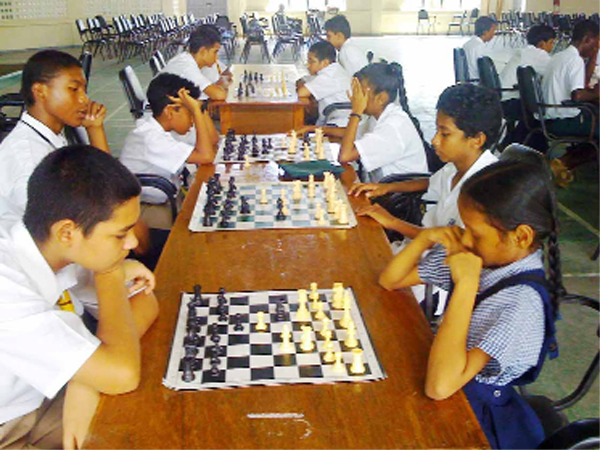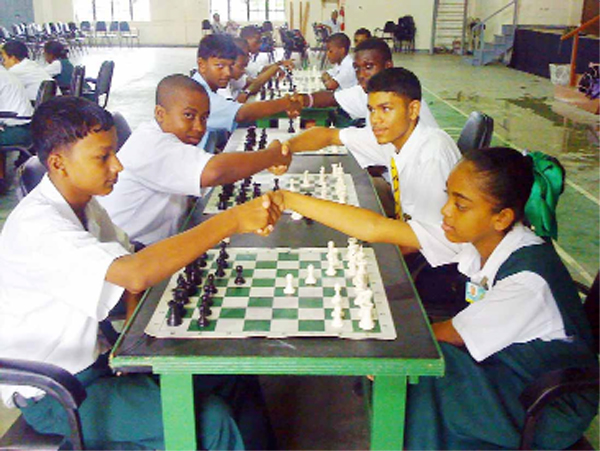‘Every decision we make builds our character and forms the basis of our future decisions’ – Garry Kasparov
The hosting of a National Schools Chess Championship marks the fulfilment of a dream for the Guyana Chess Federation and Dr Frank Anthony. Ever since Minister Anthony established the steering committee for the development of chess in Guyana last year, he pursued the cause for a schools’ championship. He is convinced that chess is a cognitive nexus, a place where art and science come together in the human mind, and are then refined and improved by experience.

The language of chess has insinuated itself into a number of other pursuits. After a while, we unconsciously use the same standard for decision-making that we do in chess. And the standards of success and failure in chess are strict. On the chessboard, if your decisions are faulty, your position deteriorates, and certainly, you are heading towards a loss. If, however, your decisions are sound, you are headed for victory. Every move reflects a decision, and in time we learn to use this identical method to make crucial decisions in our lives. This is the power of chess.

It was quite something to witness 13 schools, totalling 47 students, in 13 different school uniforms sitting quietly at tables just waiting for the games to begin. It was an emotional moment for me, and undoubtedly, a great moment for this nation. The significance of the moment should not be underestimated.
The sprinkling of schools, although tiny in ratio to the numbers which are scattered throughout Guyana, imparted a national atmosphere to the occasion. You could feel it. Especially since a majority of the schools present had never had the opportunity of playing against other schools.
Many of the participants had never seen a chess tournament before, nor how it was conducted. The majority had never seen a chess clock . But there was a buoyancy about the kids, a kind of expectancy that could not be contained. Without exception, they seemed to be all happy to be playing competitive chess − regardless of whether they won, lost or drew their games. They were content for the moment.
I can imagine the enthusiasm with which these students would return to their respective schools. Minister Anthony challenged each one to bring five other students to the chess table, and bear the responsibility of ensuring they learn to play the game. If each one can bring along two (not five) of their colleagues to the table, it would be a Usain Bolt start to the race of playing chess in all the schools. To sustain such an ambitious effort, the Ministry of Sport has acquired some 200 additional chess sets for distribution to schools, some demonstration boards to facilitate the teaching process, and a number of chess clocks to train children to make decisions within a certain time-frame.
Next year promises to be an exciting one for the kids. The intention is to multiply the numbers that play chess. We must carry the game to each of the regions, so that for the next schools’ championship we can have a qualification regional competition. The top finishers from each region would eventually travel to Georgetown for one grand tournament.
A merry Christmas to all, especially to all the kids who played in the schools’ championship.





